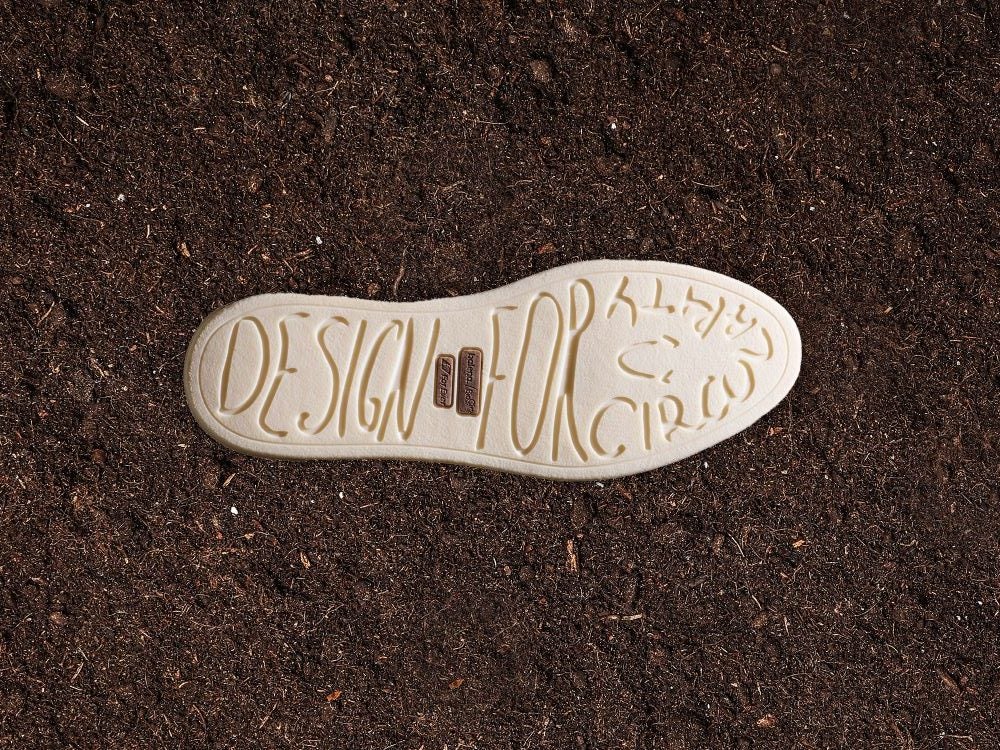Made using Balena’s BioCircFlex, a bioplastic material, and ForEver’s mould injection process, the soles are fully compostable in what the two companies are calling a “significant breakthrough in circular footwear design”.
Balena’s BioCircFlex material is said to be soft and durable – as well as easily scalable. The company claims the soles are able to meet the performance standards “of any shoe brand” without compromising on circular aims.
The material is 50-85% biobased and said to be fully compostable in a controlled environment. Balena is working with a network of industrial compost facilities across the world to ensure the full decomposition and biodegradation of its soles.
Balena claims to have taken circularity “a step further” with its BioCycling concept, which means that BioCirc materials go through a biological recycling process. At end-of-life, the materials will fully decompose safely in industrial composting facilities, without any negative impact on the quality of the compost.
The polymers used in Balena’s soles will break down into smaller fragments of carbon dioxide, water and biomass in industrial composting facilities. The leftover materials can then become an energy source for living soil bacteria.
André Campos, sales manager at ForEver, said: "The partnership with Balena is a thrilling journey fueled by a shared vision of innovation and environmental responsibility. Embracing BioCirflex is more than a collaboration and we're excited to tread this sustainable path with Balena, shaping a future where every step is eco-conscious."
Balena previously teamed up with UK shoe manufacturer Vivobarefoot to create a 3D-printed shoe made from compostable materials.
In 2022, Balena launched a new 100% biodegradable plastic footwear, using what it claimed was the first fully mouldable, biodegradable elastomer which provides a viable alternative to other polluting plastic materials.









